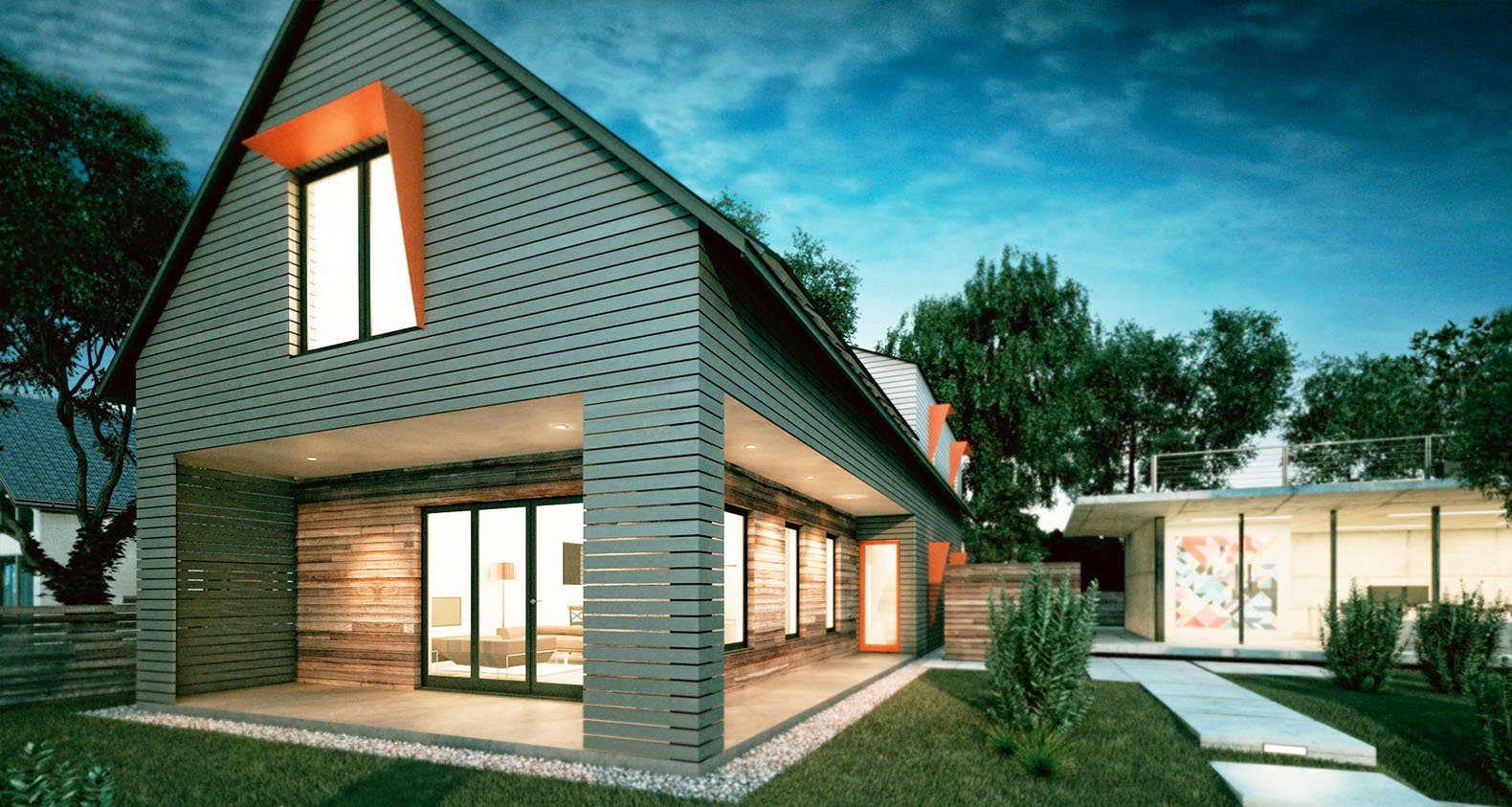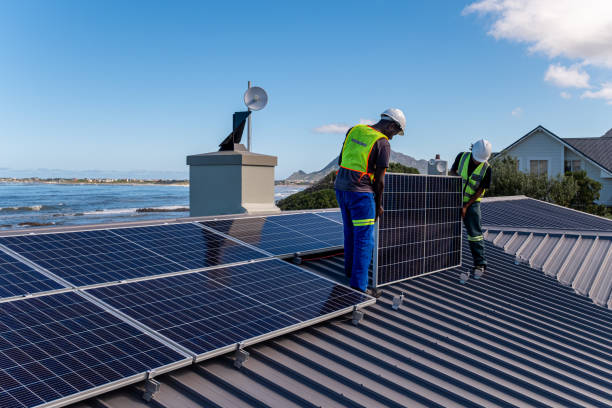
Real Estate
The Growing Demand for Sustainable Housing
Sustainable housing has seen a significant surge in demand as more buyers prioritize environmental consciousness and energy efficiency. This trend reflects a broader shift towards green living, where homeowners seek ways to reduce their carbon footprint, decrease energy costs, and contribute positively to the environment. Buyers seek aesthetic and functional homes and properties that align with their values and environmental concerns.
Cities worldwide, from bustling New York to innovative Tokyo, are implementing sustainable housing practices to meet consumer expectations. This shift is evident in new constructions designed with sustainability in mind and retrofitting and renovating existing properties to enhance their eco-friendliness. Homeowners are increasingly aware of the long-term benefits of sustainable living, including lower utility bills and improved indoor air quality.
Popular Eco-friendly Housing Trends
Numerous eco-friendly trends are becoming mainstream in the housing market, from innovative solar panels to efficient rainwater harvesting systems. For instance, the rise of solar energy in homes represents a significant move towards sustainable living. Solar energy systems reduce electricity bills and decrease dependence on non-renewable energy sources, positioning them as a sustainable, long-term investment for homeowners. Additionally, incorporating solar energy reduces greenhouse gas emissions, making it a preferred choice for modern, eco-conscious residences. For example, the Homes for Sale in Palm Desert market has also seen an influx of eco-friendly options catering to this growing demand.
Another trend gaining traction is the use of sustainable building materials. Bamboo, reclaimed wood, and recycled steel are currently trendy options for builders and renovators aiming to reduce their environmental footprint. These materials are renewable and often locally sourced but have a smaller carbon footprint than traditional building materials. The shift towards sustainable materials is also driven by their durability and aesthetic appeal, which add a unique, eco-friendly charm to homes.
Impact on Property Values
Eco-conscious homes aren’t just good for the planet; they’re good for the wallet, too. Studies have shown that sustainable features can significantly increase property values, making them a wise investment for the future. As appraisers increasingly consider energy-efficient appliances, insulation, and green certifications when evaluating a home’s value, properties with these features often fetch higher prices on the market. Buyers are ready to pay extra for houses that have lower operational expenses and promote a healthier living atmosphere.
According to recent research, properties with sustainable features can sell for up to 15% more than traditional homes. This increased price shows the increasing value buyers place on environmentally friendly living, as they recognize the advantages of lower energy expenses, improved comfort, and a smaller environmental impact. As sustainability becomes a core consideration in real estate transactions, homeowners are more likely to invest in green improvements, knowing that these upgrades will pay off in terms of savings and enhance the resale value of their properties.
Sustainable Home Improvements You Can Make
Are you interested in making your home more eco-friendly? There are numerous sustainable home improvements you can undertake. These upgrades not only help the environment but also lead to substantial savings on utility bills and increase the overall value of your property.
Energy-efficient Windows
The installation of double or triple-pane windows can significantly lower heat loss during winter and help to keep your home cooler in summer. These windows are designed to insulate better than standard windows, thus conserving energy. Energy-efficient windows come with advanced glazing and coatings that reflect heat and reduce harmful UV exposure, enhancing your home’s comfort and energy efficiency year-round.
Green Roofs
Green roofs, which are completely or partly covered with plants, provide high-quality insulation, decrease runoff from rainwater, and encourage a variety of species in city environments. They also add aesthetic appeal to homes, making them attractive to potential buyers. Green roofs can lower urban air temperatures and mitigate the heat island effect, contributing to more sustainable and livable cities. Additionally, they provide natural habitats for wildlife and help filter pollutants from the air and rainwater.
Smart Thermostats
Smart thermostats learn your heating and cooling preferences to create an optimal energy-efficient schedule. These devices can also be controlled remotely, allowing homeowners to adjust settings. Smart thermostats enhance the comfort of your living spaces and contribute to significant energy savings by optimizing heating and cooling patterns based on occupancy and weather conditions.
Benefits of Sustainable Practices
Beyond financial and environmental perks, sustainable living often results in healthier homes with better air quality and natural lighting. These benefits contribute to the overall well-being and satisfaction of the residents. Homes designed with sustainability often incorporate improved ventilation, non-toxic building materials, and ample natural light, creating healthier indoor environments.
Sustainable homes also tend to have lower maintenance costs. Durable materials and energy-efficient systems require less frequent replacements and repairs, saving homeowners money in the long term. Sustainable features like solar panels and rainwater harvesting systems can also reduce dependency on external utilities, providing resilience and self-sufficiency in fluctuating utility prices or supply disruptions.
Government and Industry Initiatives
Governments and industry leaders worldwide are advocating for sustainable practices. For example, many cities offer incentives for installing rain gardens or energy-efficient appliances, making green living more accessible than ever. These incentives often include tax rebates, grants, and low-interest loans, encouraging homeowners to adopt sustainable practices. Such programs aim to reduce environmental impact and promote sustainability on a broader scale.
In addition, various international agreements and local regulations are pushing developers to adopt eco-friendly building practices. These policies aim to reduce greenhouse gas emissions, promote resource efficiency, and enhance sustainability. Builders and developers increasingly recognize that incorporating sustainable features can provide a competitive edge in a market that values environmental responsibility.
The Future of Sustainable Real Estate
As awareness and technology advance, the future of real estate is undeniably green. Upcoming innovations will continue to make sustainable living more convenient, affordable, and desirable. Smart home technology, improved recycled materials, and advanced energy storage solutions are just a few examples of what’s in store. These innovations will enhance the efficiency and sustainability of homes, making it easier for homeowners to live green lifestyles without sacrificing comfort or convenience.
Moreover, educational initiatives are raising awareness about the benefits of sustainable housing. The demand for eco-friendly homes will grow as more people understand the long-term advantages. Academic programs and awareness campaigns can empower consumers to make informed decisions about sustainable living, further driving the adoption of green practices in the real estate market.
Conclusion: A Greener Path Forward
Adopting sustainable housing practices is a crucial step towards an environmentally friendly future. As trends and technologies evolve, these changes promise to benefit homeowners, communities, and the planet. Whether buying a new home or renovating your current one, considering sustainable options is a step in the right direction. These practices can transform the housing market, making it more resilient, resource-efficient, and environmentally responsible.
Stay Ahead with Our Analysis: well known figure






